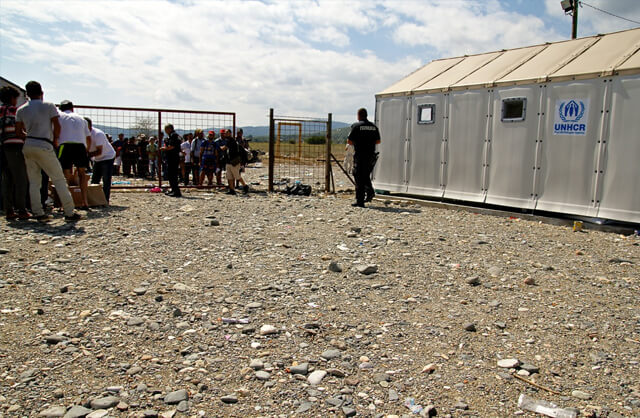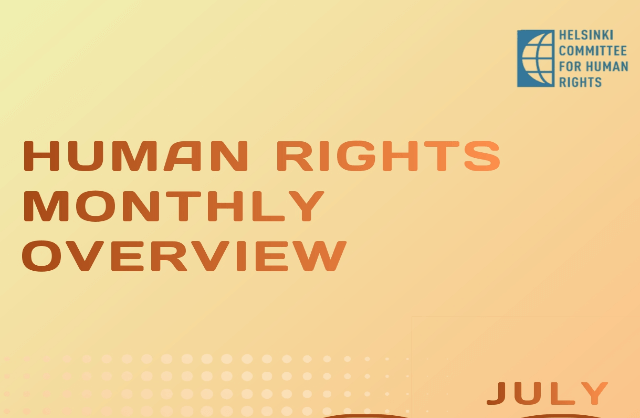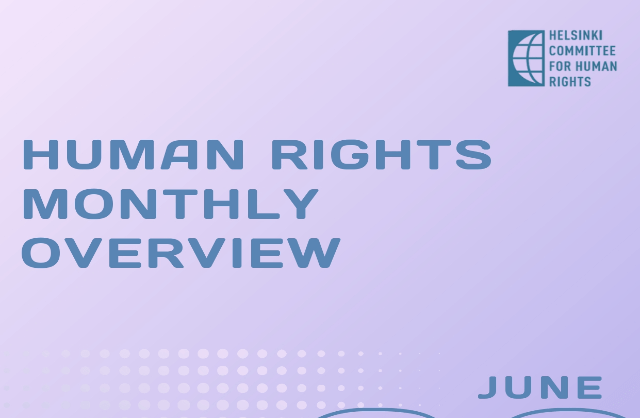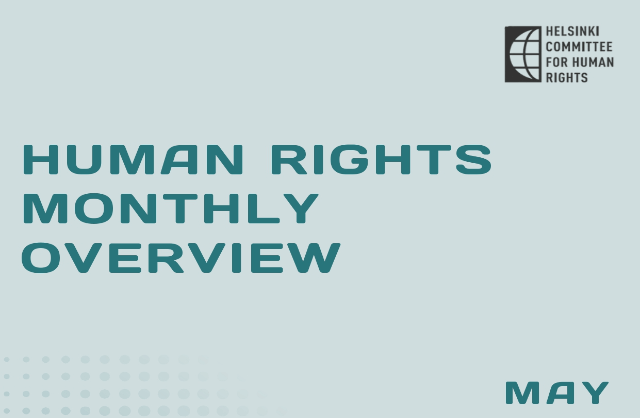The situation at the border crossings Gevgelija and Kumanovo for the period: 21.12.2015 – 27.12.2015
December 30, 2015

The weekly report on the situation at the border crossings Gevgelija and Kumanovo includes the following topics: Available facilities and conditions at the camp and Institutional treatment.
Gevgelija
Available facilities and conditions
21,036 refugees were registered in the course of this period, which is 19% more than the past weekly period when a total of 17,046 refugees were registered.
In the camp, speakers have been set up on several electricity poles. The Helsinki Committee welcomes this move and believes that communication be easier and better due to this move, especially in critical or unforeseeable situations. The refugee document control now takes place at two points, i.e. they register when they enter the camp and before they board the train. The movement takes place smoothly and in a coordinated manner and no incidents were observed in the course of the past week.
On 22.12.2015, Tuesday, a protest of the taxi drivers was held, who blocked the railway and lasted for the next two days. Due to this, the refugees were held up in the camp for more than 10 hours which made them tired and irritable. At the end of the day, due to the large number of refugees who were in the camp, some of them were allowed to take taxis, and the rest of them by trains. The taxi-drivers demand that the refugees are allowed to take the trip from Gevgelija to Tabanovce by taxi, i.e. to be allowed to transport the refugees at least twice a week. Two days after the protest, the Crisis Management Center reached a decision that the basic means of transport for the refugees will continue be the train, while taxis and buses will be used under certain circumstances, meaning in cases of increased frequency of refugees, lack of wagons on the train, when the number of refugees is too low, and when the refugees have been waiting in the camp for a period longer than 5 hours, and no train has come to collect them.
Institutional treatment
In the course of this period, the police officers on-field have performed their duties in a professional and conscientious manner. A Croatian delegation consisting of high police officials paid a visit to the camp. There has been an announcement that starting from January, there will be joint collaboration and monitoring conducted together with the Serbian, Hungarian and Czech police.
In an isolated case, employees of Macedonian railroads have asked for a donation of blankets (which are given to the refugees by UNHCR) in order to let in a group of 20 refugees who did not have enough money to buy tickets.
The Helsinki Committee urges the competent institutions to find a solution for free transportation of the refugees who do not possess the means to pay for their tickets.
Kumanovo
Available facilities and conditions
A kitchen is being set up in the camp in Tabanovce, and a new electrical installation is being set up in the new tents.
Apart from the camp coordinator, a food and clothes coordinator has been appointed in Tabanovce, a representative from the Ministry of Labour and Social Policy.
The refugees keep complaining about the bad conditions in the train wagons which are always overcrowded and cold, and some of the refugees are forced to sit on the train floor. In addition, the refugees who are not allowed to enter (citizens of countries other than Syria, Afghanistan and Iraq) are increasingly starting to use the cargo train which is insecure and threatens their safety.
In an isolated case, three refugees arrived in the camp in Tabanovce, and they had been riding on the external side of the train, i.e. they had been clutching to the last train wagon. They were in a bad conditions, frozen and hungry, but they were provided with adequate care at the camp.
Institutional treatment
There is constant presence in the camp of groups who have arrived through illegal routes, do not possess any documents and it is not possible to assess which is the country of their origin. They stay in the camp several days and then they leave it heading in an unknown direction.

This report is made possible by the generous support of the Foundation Open Society Institute (FOSI) within the project „Improvement of the rights protection for migrants and asylum seekers in the Republic of Macedonia“. The contents are the responsibility of the Helsinki Committee for Human rights of the Republic of Macedonia and do not necessarily reflect the views of FOSI.


